When developing a home renovation or new construction project, homeowners and general contractors will need to allow the City of Toronto to perform a building inspection. This multi-stage process ensures that all work meets the required safety and building code standards, ultimately protecting homeowners and future occupants. Depending on the scope of work, a project could have several inspection stages.. Here’s a closer look at some of the key areas that could require a City of Toronto building inspection:
1. Demolition
All non-load bearing demolition can be completed prior to building permit issuance. Once a project reaches load bearing and structuring elements a permit needs to have been issued and placed in the property window. An inspection should be ordered prior to load bearing demolition and temporary support measures installation.
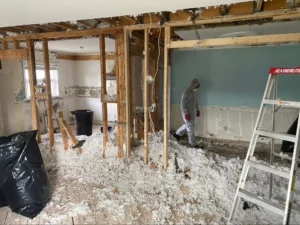

2. Excavation and Footings
If a project requires a concrete foundation (for an addition), there will be a series of inspections, including foundation forms prior to concrete pour, and completion of foundation wall.
3. Structural
A structural inspection could apply to any work involving load-bearing elements, structural framing, or decks.This work usually requires a structural engineer’s stamped design. Inspectors evaluate whether the structure is built to design, ensuring it can safely support weight and withstand environmental factors. This step is especially crucial for large-scale renovations, additions, stairs and clearance, and deck installations, as structural integrity is a key factor in safety and longevity.
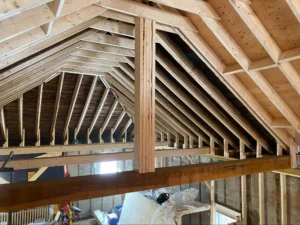
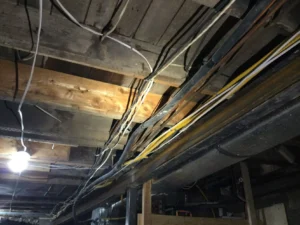
4. Mechanical
Mechanical inspections are required at the Rough In stage for Plumbing and HVAC. These phases of construction require design as well as part of the permit submission package. The Plumbing and HVAC finish are part of the final occupancy inspection.
Electrical requires an ESA permit, and is an inspection under a separate authority.
An electrical inspection will ensure that all smoke alarms, carbon monoxide detectors, and necessary regulations for fire safety are met.
5. Insulation and Vapour Barrier Inspection
Insulation must be inspected before drywall can be installed. Proper insulation prevents heat loss, improves energy efficiency, and ensures the home stays comfortable year-round. The inspector checks that all insulation is fully packed into wall cavities and that there are no gaps where cold air could seep through. The vapour barrier is also inspected to ensure that moisture cannot penetrate the walls. This involves checking that plastic sheeting is properly sealed around windows, door. A well-installed vapour barrier prevents condensation buildup inside walls, reducing the risk of mold and water damage.
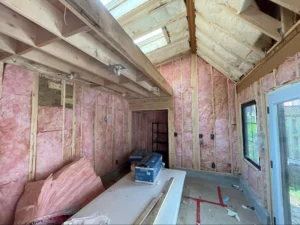
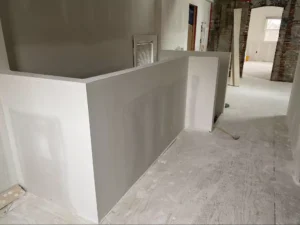
6. Drywall and Fire Rating Inspection
Once insulation and vapour barriers pass inspection, drywall installation can proceed. Fire-rated drywall (Firecode Core, aka ⅝” Type X) is essential in projects where fire rating is specified in the design.
Depending on the building codes and the specific project, a fire-rated barrier may need to provide up to a 60 minute rating for fire resistance. This is achieved by adding multiple layers of drywall, with each layer contributing a certain amount of fire protection. An inspector ensures that these requirements are met before proceeding to the next stage.
7. Final Inspections
To confirm that all systems are properly installed and functional, final inspection can include a finished plumbing inspection to verify that all water lines, drainage systems, and fixtures are correctly installed and operational. Water caps and shut-off valves must function properly.
These final inspections guarantee that the home is safe, up to code, and ready for occupancy.
Why Building Inspections Matter
While building inspections are mandatory, they also serve as an added layer of protection for homeowners. By ensuring that each stage of the construction process is thoroughly inspected, the City of Toronto helps maintain quality standards, prevent structural failures, and ensure fire safety compliance. A reliable general contractor will coordinate these inspections efficiently, ensuring a smooth and successful project.
To ensure your home renovation project is completed to city regulations, contact D2 Build directly. We have the experience and the team to ensure a professional and thorough job that exceeds your expectations.
